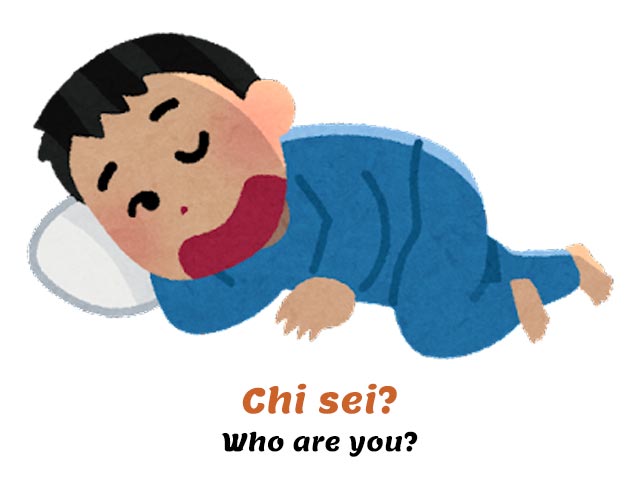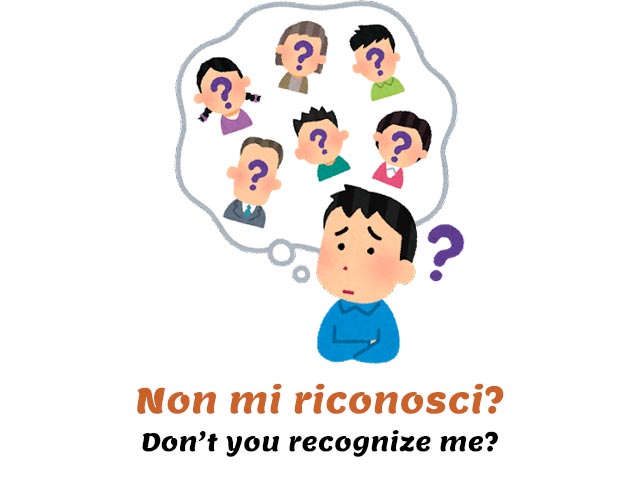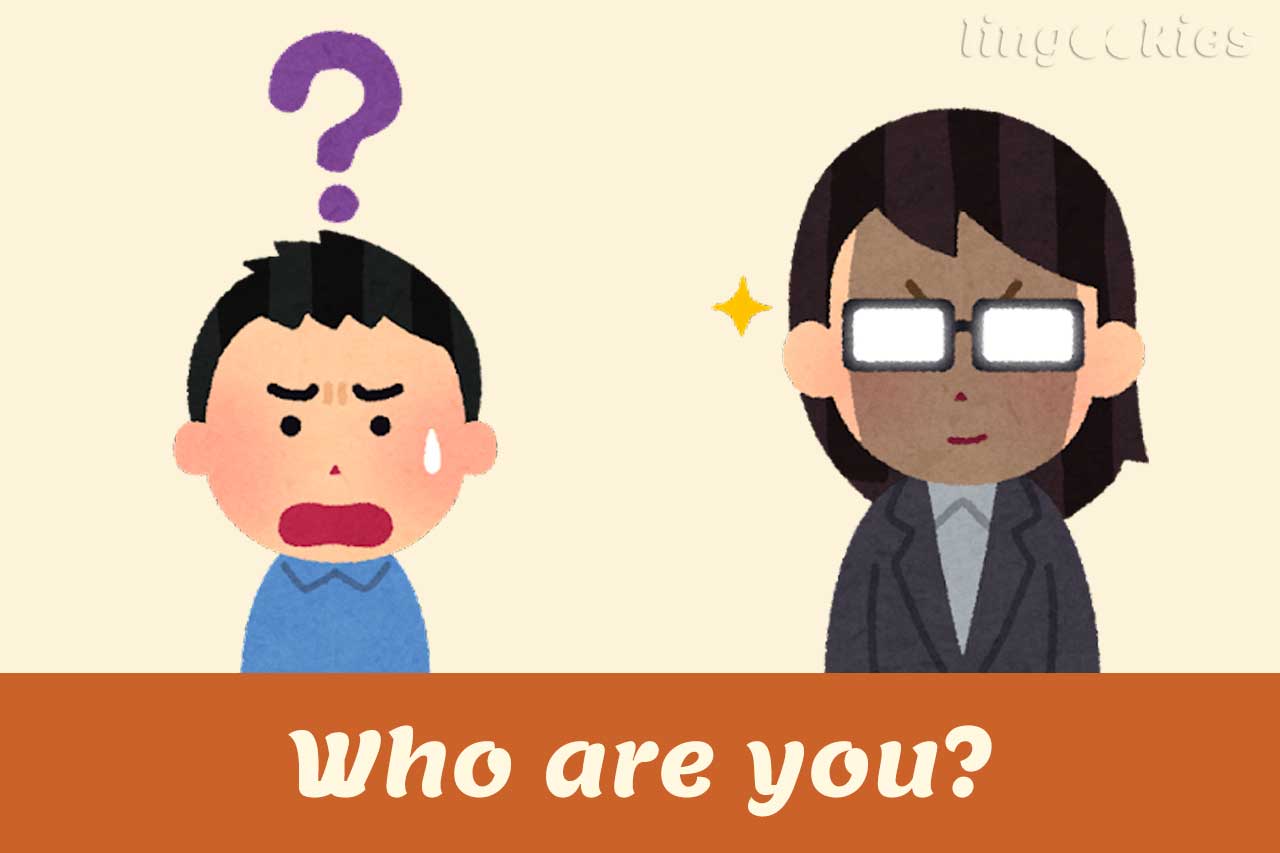How do you say it in Italian?
Chi sei?
| Words you should know | Chi (who) + essere (to be) |
| When to use this | With 1 person you’re familiar with |
| When NOT to use this | With strangers and groups |
Chi sei?
Who are you?

For example, you can say…
Chi sei? – Sono il fratello di Alessandro. Sono venuto a portarti questo pacco.
Who are you? – I’m Alessandro’s brother. I’ve come to give you this package.
Chi sei? – Sono tua sorella! Non mi riconosci?!
Who are you? – I am your sister! Don’t you recognize me?!

As you may already know, verb endings change for all subject pronouns in Italian, so you can actually do without pronouns in the sentence. The subject is understood thanks to the verb ending!
Sei is a conjugation of the verb essere, which means to be. Sei is basically the second-person singular present tense conjugation of essere. It is an irregular verb.
Chi siete?
| When to use this | With a group of people |
| When NOT to use this | With strangers and 1 person at a time |
Chi siete?
Who are you? (plural)
In Italian, unlike English, there are two kinds of “you”. There is a singular “you” and then there is a plural “you”. If you’re speaking to a group, you’ll need to conjugate any verb or pronoun accordingly, and don’t forget the gender!
For example, you can say…
Si può sapere chi siete? È un’ora che girate attorno a casa nostra!
May one know who you are? You have been hanging around our house for an hour!
Chi siete? Fatevi vedere, non nascondetevi!
Who are you? Show yourselves, don’t hide!

Chi è?
Chi è?
Who are you? (formal)
When speaking formally, Italians address each other with the subject “she”, lei. Use Lei in the written form if you want to be very polite.
More commonly though, you will find these expressions instead:
Chi è lei?
Who are you? (formal)
Lei chi è?
Who are you? (formal)
This is because chi è can also be translated as who is it/he/she. To avoid any misunderstanding, the formal subject pronoun Lei is added to the sentence.
This question uses the third-person singular conjugation. Basically, when speaking formally, Italians address each other with the subject “she”, lei.
More free Italian resources
You might want to keep learning Italian online with these free Italian resources:
❤️ If you liked this lesson on how to say who are you in Italian, share it with your friends!


